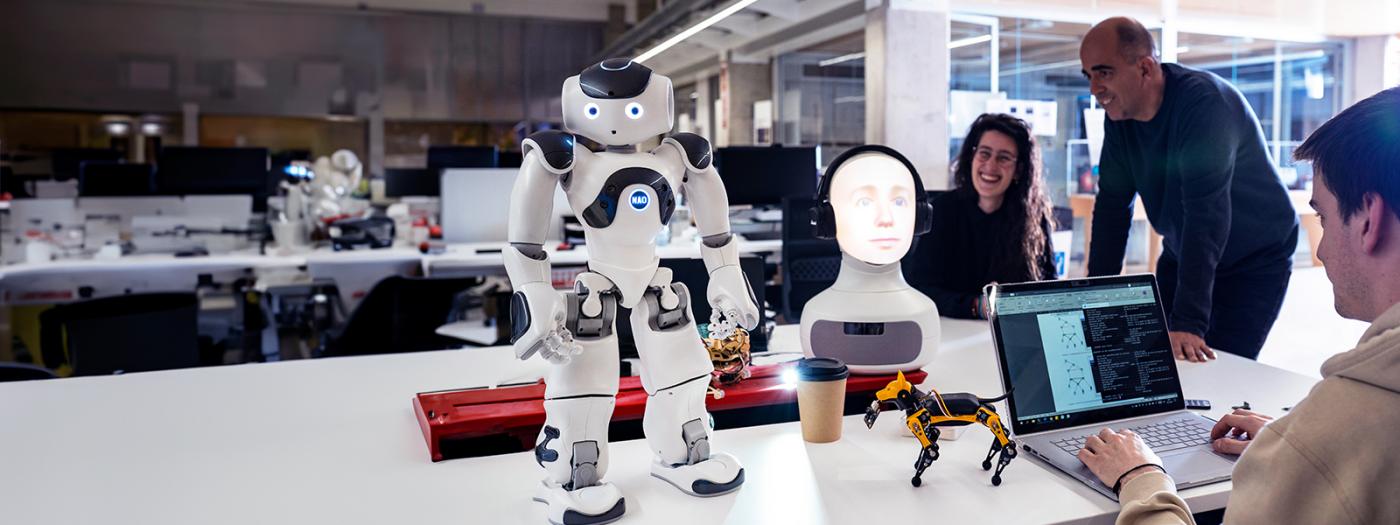Titular Professors
It is highly recommended to have previously taken the following three subjects:
Programming Methodology and Technology
Object-Oriented Design and Programming
Introduction to Robotics
The objective of this subject is to lay the foundations of artificial intelligence for application to robotics:
Understand the scope of Artificial Intelligence and its application in robotics.
Understand the computational cost and solutions quality of the different search algorithms.
Understand basic Machine Learning methods.
Understand how Deep Learning models work and learn how to create a neural network from scratch.
Discover the basics of Generative AI.
Achieve analysis techniques, interpretability and data processing to use algorithms.
0. Presentation
1. Introduction, ethics and legality
2. Search problems
3. Machine Learning: clustering
4. Machine Learning: classification
5. Machine Learning: Regressions
6. Image processing
7. Neural Networks MLP
8. Neural Networks CNN
9. Generative Artificial Intelligence and AI Agents
Master classes, exercises, practices, debates.
Continuous evaluation from exercises, presentations and a project.
This subject will have a continuous assessment as follows:
FINAL GRADE = 20%·AC1 + 20%·AC2 + 20%·AC3 + 40%·Project; all parts >= 5
The materials provided in the course of the subject.
D. Floreano & C. Mattiussi (2008). Bio-Inspired Artificial Intelligence: Theories, Methods, and Technologies (Intelligent Robotics & Autonomous Agents Series)
Intelligent Robotics and Auton. ISBN-10: 0262062712 / ISBN-13: 978-0262062718.
D. Jefferis. Artificial Intelligence: Robotics and Machine Evolution
Crabtree Pub Co (1750)
M. Ginsberg. "Essentials of Artificial Intelligence". Morgan Kaufmann Publishers (1993);
E. Golobardes and A. Orriols. "Intel·ligència artificial. Guia d'estudi". Creative Commons Deed (2008)
N.J. Nilsson. "Artificial Intelligence: A New Syntesis". Morgan Kaufmann Publishers, Inc. (1998);
E. Rich and K. Knight. "Inteligencia Artificial". McGrawHill;
S. Russell and P. Norvig. "Artificial Intelligence. A Modern Approach". Prentice Hall International Editions;
